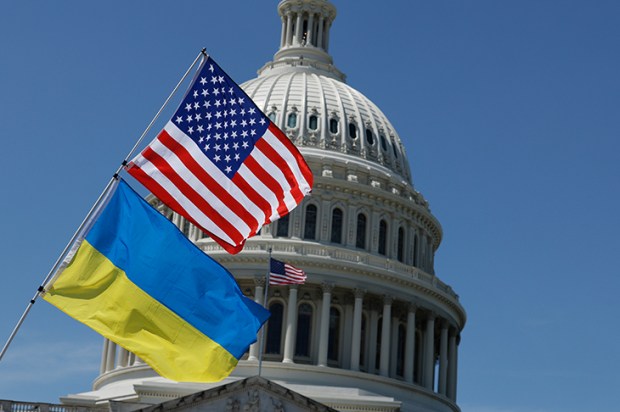With ‘lawfare’ more intense than ever before, the Trump administration is the subject of an organised and unprecedented political campaign, barely disguised as genuine litigation, brought by Democrat politicians before careefully chosen federal district courts.
It would not matter if Donald Trump were a run-of-the-mill president. In fact, if he were, none of the politician plaintiffs and activist judges would bother to be involved.
‘Lawfare’ has moved on from the various failed attempts to block Donald Trump’s candidature. It is surely out of all proportion for a judge in one of America’s 94 federal district courts, abandoning even a soupçon of judicial restraint, to purport to issue a nationwide injunction against the President based on some or other interpretation of the constitution.
This is despite the President having a clear political mandate to achieve his agenda and the powers exercised being clearly within his constitutional purview.
A current object is to block the deportation of the dangerous criminal gangs allowed in by the Biden administration. According to a New York Times poll, 87 per cent of Americans support their deportation.
I believe there is a solution available to the President now.
This is to establish, by legislation, a Federal Constitutional Court that functions at both trial and appellate levels.
Subject to the Supreme Court, it would have exclusive jurisdiction in constitutional matters and the subject matter of any of the current presidential Executive Orders.
To pass this, the filibuster might require cloture or a more drastic solution.
Then, with the advice and consent of the Senate, the President would be able to appoint someone of the standing of, say, Democrat lawyer, Emeritus Professor Alan Dershowitz, as Chief Judge, with several other prominent constitutional experts as judges, who for efficiency could also be appointed as federal circuit judges.
As to the Founders’ original intention, we should recall they never suggested that even the Supreme Court (much less lower courts not even mentioned in the constitution) be invested with the power to review, and certainly not finally review, the constitutionality of an executive or legislative act.
To understand this, we should also recall that the Founders were strongly influenced by Montesquieu, the eighteenth-century French philosopher who had identified England as the one nation in the world ‘whose constitution has political liberty for its direct purpose’.The reason, Montesquieu said, was that the English practised the separation of the executive, legislative, and judicial powers. Bear in mind that when we speak of the English or British constitution, we do not refer to a single document, but rather, as Bolingbroke said, to that ‘assembly of laws, institutions, and customs’ by which ‘the community has agreed to be governed’.
What Montesquieu identified was the result of the Glorious Revolution of 1688, which introduced what can be called the constitutional monarchy Mark I to England.Under this, in 1701, the judges were granted tenure. This meant they could be no longer be arbitrally dismissed. Thereafter, judicial commissions would provide that judges held office ‘quamdiu se bene gesserit,’ i.e. ‘during good behaviour’. Judges could then only be removed by a resolution of both Houses of Parliament.
Under Montesquieu’s influence, and undoubtedly their own colonial experience, the American Founders based their constitutional model on a republican version of the English model, but with an even greater separation of powers between the legislative and executive branches. On this, the Founders seem to have believed their somewhat exaggerated propaganda about the power and authority of King George III as set out in that otherwise marvellous document, the Declaration of Independence.
As Winston Churchill judged it, the Declaration is ‘the third great title-deed on which the liberties of the English-speaking people are founded’.
The results of the Founders’ fictions about George III were at least twofold: a powerful single-person executive and, to repeat, a far greater separation between the executive and legislative branches. But when it came to the judiciary, the Founders expected this to be similar to England’s, thus continuing much of their colonial experience.
In that regard, it is relevant to recall that the American colonies were the freest the world had seen, which explains their expectation that they should decide such matters as taxation, a point recognised by sophisticated English thinkers led by Edmund Burke.
King George’s problem was that he was so committed to the sovereignty of parliament – a great advance on the Stuart kings – that he could not accept any disobedience of parliament, however justified. But unlike the Bourbons, who supposedly ‘learned nothing and forgot nothing’, the British learned from the War of Independence, realising that not only should colonies proceed to self-government, but independence must also follow.
As to the judiciary, Alexander Hamilton famously observed in Federalist Paper No.78 that they would be the ‘least dangerous’ branch of government. Lacking the power of the sword (the executive) or the purse (the legislature), the judiciary’s power was limited to ‘judgment’, and it could ‘take no active resolution whatever’.
The Founders never expected the judges to seize the power they did not even think of granting them, the power of judicial review to determine whether legislation and executive acts were constitutionally valid. However, under a strong chief justice, John Marshall, in the 1803 case of Marbury v. Madison, the Supreme Court did precisely this. Strongly believing in states’ rights and fearing an overly powerful judiciary, Founders James Madison and Thomas Jefferson were outraged by this assertion of judicial review power. However, since no practical outcome resulted from the decision, no action was taken.
In fact, the reaction was so hostile the Court did not use the power again until its disastrous decision in Dred Scott, in 1857, which ended the Missouri Compromise between the northern and southern slave-owning states, ruled those of African descent could never be citizens and undoubtedly precipitated the Civil War. Abraham Lincoln refused to follow it. Nor did he when, during the war, the Court ruled that he could not suspend habeas corpus.
What is being discussed today are federal trail courts, not national courts, which are not in the constitution, purporting to enjoin the President of the United States.
Surely, it is time to nip this nonsense in the bud.
Got something to add? Join the discussion and comment below.
You might disagree with half of it, but you’ll enjoy reading all of it. Try your first month for free, then just $2 a week for the remainder of your first year.













